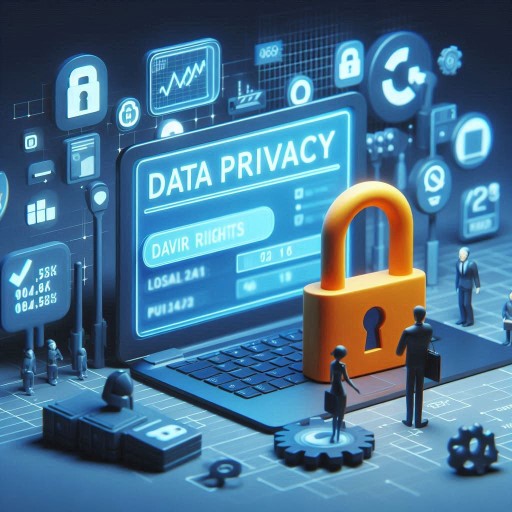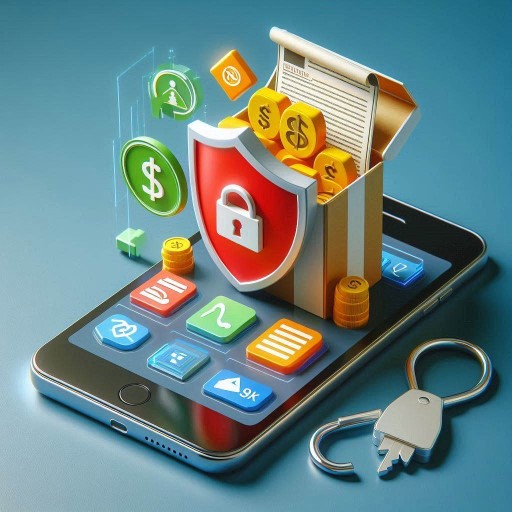TechTrend4u – In today’s digital age, personal data is one of our most valuable assets. Every time we use the internet, shop online, or download an app, we leave a trail of data that can be used by companies or third parties. Data privacy protection is becoming increasingly important due to the many cases of misuse of personal information. This article will discuss the importance of data privacy, the threats faced, and the steps you can take to protect your privacy rights.

Why is Data Privacy Important?
Data privacy is the fundamental right of every individual to control their personal information. Personal data includes everything from names, email addresses, to browsing history and online preferences. If this data falls into the wrong hands, it can be used for a variety of harmful purposes, such as identity theft, fraud, or even information manipulation.
Case in point: Cambridge Analytica Scandal One of the most famous examples of a data privacy breach was the Cambridge Analytica scandal in 2018. The company collected data on millions of Facebook users without permission and used the information to influence the outcome of political elections. This scandal opened the world’s eyes to how personal data can be exploited without our knowledge.
Read more: Latest Cyber Threats: Protect Yourself from Cyber Attacks
Threats to Data Privacy
Identity Theft
Identity theft occurs when a person’s personal information is used without authorization to commit fraud or crime. Data such as ID numbers, credit cards, or phone numbers are often prime targets.
Implementation: The use of encryption on personal data stored online can reduce the risk of identity theft. Many banks and financial services are now implementing end-to-end encryption to protect their customers’ information.
Data Breach
A data breach is an incident where sensitive data is accessed or stolen by an unauthorized party. This can happen due to weaknesses in security systems or through sophisticated cyberattacks.
Case Example: Marriott Data Breach In 2018, Marriott International suffered a major data breach that resulted in the personal data of around 500 million guests being exposed. This included passport information, phone numbers, and email addresses. This case highlights the importance of securing data on a global scale.
Unauthorized Use of Data
Many companies collect user data for marketing or analytics purposes without the knowledge or permission of the user. This violates individual privacy and can lead to public distrust of the company.
Implementation: Regulations such as GDPR (General Data Protection Regulation) in Europe force companies to ask for explicit permission before collecting and using users’ personal data. This gives individuals more control over their data.
Read more: Online Security Best Practices: Keep Your Data Private
Protecting Your Data Privacy
1. Use Privacy Protection Tools
There are many tools that can help protect your data privacy, such as VPNs (Virtual Private Networks), password managers, and privacy-focused browsers.
Implementation: Using a VPN like NordVPN or ExpressVPN can encrypt your internet connection, so transmitted data cannot be easily accessed by third parties. Also, browsers like DuckDuckGo that don’t track user activity are a safer option than conventional browsers.
2. Check and Manage App Permissions
Many apps request access to personal data such as location, contacts, and camera. It is important to regularly check and manage these permissions to avoid granting unnecessary access.
Implementation: On Android and iOS devices, you can go into the privacy settings to check the permissions granted to apps. Limit the app’s permissions to only the data that is necessary to perform its primary function.
Case Example: In 2020, the TikTok app came under scrutiny for claiming to collect excessive user data, including clipboard access on the device. This raised concerns about the extent to which users’ personal data was being collected and used.
3. Avoid Phishing Traps
Phishing is a method where cybercriminals try to obtain sensitive information by posing as a trusted entity, such as a well-known bank or company.
Implementation: Always check the authenticity of emails or messages requesting personal or financial information. Do not click on links or attachments from unknown sources. Many security apps like Norton or McAfee offer protection against phishing.
4. Update Devices and Apps Periodically
Software updates often include fixes for security vulnerabilities. Ignoring these updates can leave your device vulnerable to attacks.
Implementation: Enable automatic updates on your device to ensure you always have the latest, more secure version. For example, Windows 10 offers automatic updates to keep the system protected from the latest threats.
Read more: Mobile App Security: Protect Your Smartphone
Technologies to Protect Data Privacy
Encryption
Encryption is the process of turning data into a code that can only be cracked with a specific key. It is one of the most effective ways to protect data from unauthorized access.
Implementation: End-to-end encryption is now used by many messaging apps, such as WhatsApp and Signal, to ensure that only the sender and receiver can read messages.
Blockchain is a technology that supports privacy by creating immutable and transparent records. It can be used to protect personal data from manipulation and unauthorized access.
Implementation: Some blockchain projects, such as Civic, offer digital identity services that allow users to securely control their personal data and share only when necessary.
Read more: Blockchain and Cryptocurrency: The Future of Digital Finance
The Future of Data Privacy
As technology evolves, challenges to data privacy will continue to increase. Regulations such as GDPR in Europe or CCPA (California Consumer Privacy Act) in the United States are important steps in giving individuals more control over their data. However, new challenges such as the use of artificial intelligence in big data analysis will require a more sophisticated approach to protecting privacy.
Case Example: Use of AI in Data Analytics AI is used by many companies to deeply analyze customer data. While this helps in offering more personalized services, without proper regulation, AI can also be used to manipulate or exploit personal data.
Read more: IoT Security: Protect Your Smart Devices
Conclusion
Data privacy is a right that needs to be protected in this digital age. By understanding the threats and taking proactive steps to protect your personal data, you can reduce the risk of information misuse. Use security tools, manage app permissions, and always be on the lookout for threats like phishing. By doing so, you can ensure that your right to privacy is maintained.



